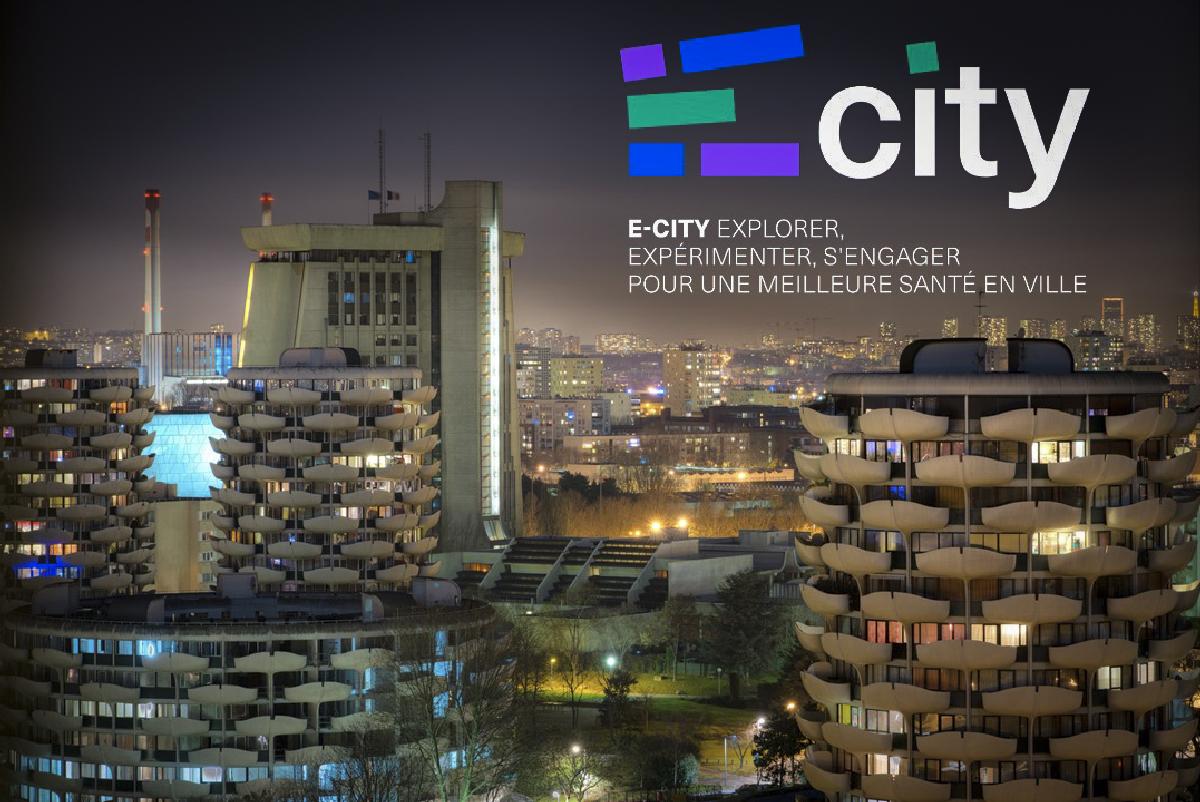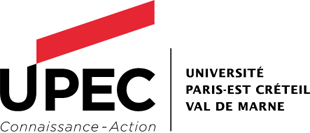- Download PDF
-
Partager cette page
- Download PDF
You are here :
- EN ›
- University ›
- Major projects
The E-city Program
Published on December 6, 2023 – Updated on January 31, 2024
The E-city applied research program aims to gain a better understanding of the impact of the environment and individual or collective practices on health trajectories, as well as advise public policies, so that everyone can control their own health. The program is centered on the creation of a student cohort and a cohort from the general population.

In 2020, UPEC launched the E-city urban healthcare research program with the aim of studying socioenvironmental healthcare issues in eastern and southern Paris, home to nearly two million people.
The E-city program's ambition is to unite UPEC research laboratories, academic partners, and the local authorities around the theme of healthcare in the city. E-city is a full-scale laboratory that works in urban areas. It relies on the central contributions of student cohorts and a cohort from the wider society to empirically analyze regional data.
Marcus Zepf, Professor and co-director at the Ecole d'Urbanisme de Paris (EUP), and Isabelle Coll, Professor at the Faculty of Science and Technology, have been actively involved in building this program.
E-city capitalizes on the success stories of university laboratories such as DIM1HEALTH (human, animal, and environmental health), DIM QI² (impacts and innovations in air quality), and the LIVE Graduate School (health trajectories and vulnerability).
Access to this testing ground enables us to identify the environmental and social aspects of healthcare and tackle the question of the exposome, i.e., all the exposures to environmental factors to which our bodies are subjected (pollution, noise, eating habits, chronic stress, social life, etc.). E-city follows the WHO's stance that the greatest advances in health could come from social and environmental improvements.
E-city aims to use its regional positioning to place the university firmly within its local community. It aims to break down the barriers of scientific research, foster dialogue between the academic world and civil society, open up the university to the city, coordinate the actions of UPEC's departments and the surrounding community, and lead local initiatives on environmental health issues. In this respect, E-city is a key aspect of the Erasme transformation project, through which UPEC aims to become more committed to its local community within the next 10 years.
The E-city program's ambition is to unite UPEC research laboratories, academic partners, and the local authorities around the theme of healthcare in the city. E-city is a full-scale laboratory that works in urban areas. It relies on the central contributions of student cohorts and a cohort from the wider society to empirically analyze regional data.
- Its mission is to study the impact of environmental degradation, exposures, and pollution on the health trajectories of individuals, as well as the impact of social, demographic, and lifestyle changes. This is a rare cohort study on both lifestyle and health.
- The main challenges include dispelling preconceived notions around healthcare in urban environments, better understanding the dynamics of healthcare and the creation of social inequalities in healthcare, identifying opportunities and tackling the question of the conditions necessary for successful public policies, continuously communicating on the ground, and constructing healthcare and environmental solutions with local players to reduce social injustices.
An Innovative, Interdisciplinary Research Program
E-city has established itself as an incubator for interdisciplinary research, encouraging innovative methodological approaches and making a strong commitment to its academic, institutional, and professional partners.Marcus Zepf, Professor and co-director at the Ecole d'Urbanisme de Paris (EUP), and Isabelle Coll, Professor at the Faculty of Science and Technology, have been actively involved in building this program.
E-city capitalizes on the success stories of university laboratories such as DIM1HEALTH (human, animal, and environmental health), DIM QI² (impacts and innovations in air quality), and the LIVE Graduate School (health trajectories and vulnerability).
Empowering People to Take Ownership of Their Health
E-city is an applied research program that also aims to develop people's skills and knowledge concerning their health and their environment. In this way, it is a decisive lever for enabling respondents to take ownership of their health trajectory. Responding to the cohort questionnaire is not only a way of becoming aware of one's health, but it is also an opportunity to become involved in a community that discusses health and the environment. E-city will do its utmost to promote this dynamic within UPEC and local authorities by raising awareness through knowledge-sharing and organized events (workshops, stands, conferences, debates, seminars, etc.).E-city and the Population in Eastern and Southern Paris
The E-city program is a locally based project. The City of Créteil, and more broadly, the municipalities of territories 11 and 12 of the Greater Paris Area, are privileged partners in preparing the launch of their general cohorts and carrying out concerted actions, with a view to disseminating knowledge and defining fairer, more effective public policies.Access to this testing ground enables us to identify the environmental and social aspects of healthcare and tackle the question of the exposome, i.e., all the exposures to environmental factors to which our bodies are subjected (pollution, noise, eating habits, chronic stress, social life, etc.). E-city follows the WHO's stance that the greatest advances in health could come from social and environmental improvements.
E-city aims to use its regional positioning to place the university firmly within its local community. It aims to break down the barriers of scientific research, foster dialogue between the academic world and civil society, open up the university to the city, coordinate the actions of UPEC's departments and the surrounding community, and lead local initiatives on environmental health issues. In this respect, E-city is a key aspect of the Erasme transformation project, through which UPEC aims to become more committed to its local community within the next 10 years.
- Download PDF
-
Partager cette page
- Download PDF
More informations
> Official website (French version)

